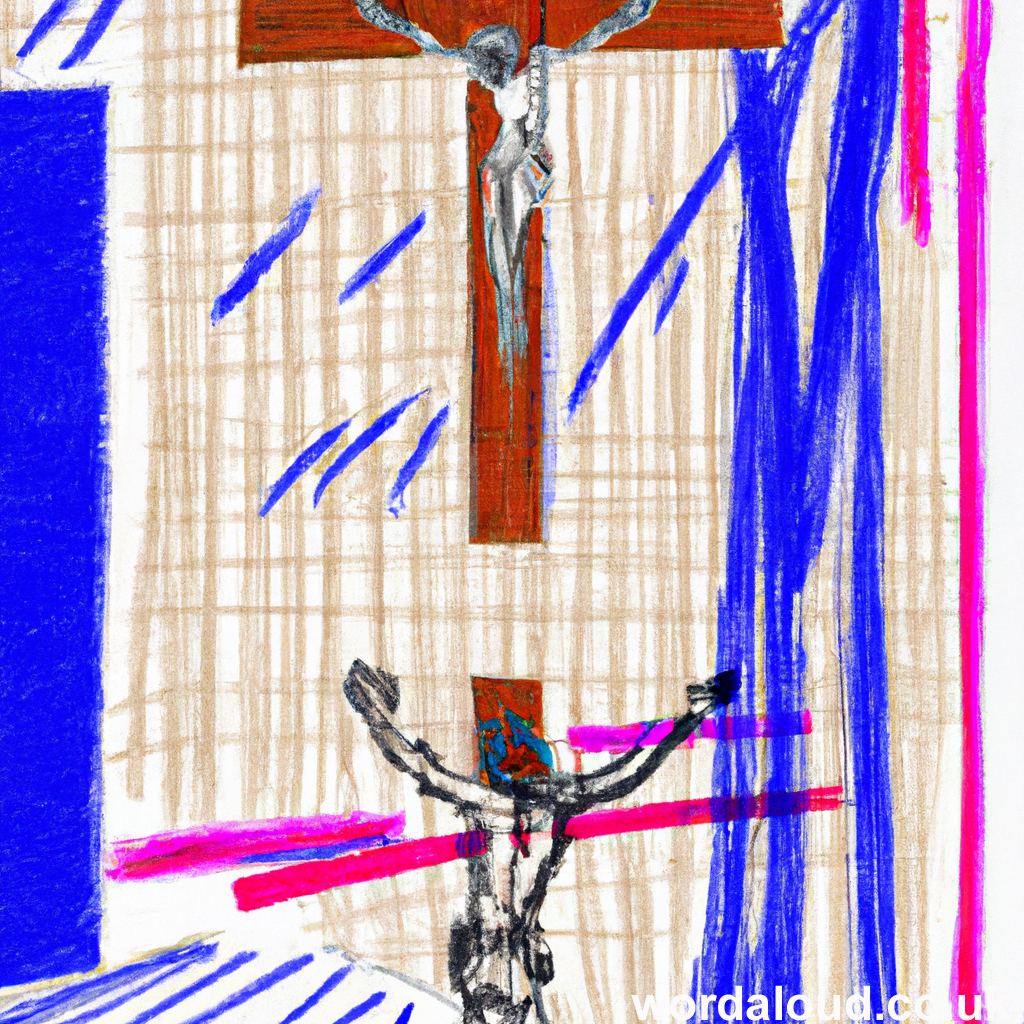Christian Art | Prayer With Jesus | Psalms | Prayer For Vindication | King David As A Boy | King James Audio Bible KJV | Image By Dall-E
Psalm 54 | King James Audio Bible
YouTube: Psalm 54 | KJV | King James Version | Audio Bible | Word Aloud
Psalm 54 is a plea for divine assistance in the midst of adversity. This psalm encapsulates a moment of distress and danger in the life of the psalmist, who seeks refuge in God’s unwavering strength and protection.
The psalm opens with an urgent appeal: ‘Save me, O God, by thy name, and judge me by thy strength.’ The psalmist acknowledges need for salvation and judgment, recognizing that only God’s name and strength can provide the deliverance required.
Through the psalm, there is a deep sense of vulnerability and danger. The psalmist describes the rising threat posed by strangers and oppressors who seek harm to his soul. This is a situation where hostility and danger have encircled the psalmist, making divine intervention a matter of utmost importance.
Amidst the turmoil, there is a profound affirmation of trust in God’s assistance: ‘Behold, God is mine helper: the Lord is with them that uphold my soul.’ The psalmist finds solace in the belief that God stands by those who support their cause, offering both help and protection.
The psalm turns towards a hopeful outcome, expressing confidence in divine justice: ‘He shall reward evil unto mine enemies: cut them off in thy truth.’ This assurance in God’s righteous judgment reflects the psalmist’s faith that those who harm the innocent will ultimately face consequences of their actions.
In the latter part of the psalm, there is a pledge of devotion and gratitude to God. The psalmist promises to make sacrifices and praises to the Lord, acknowledging the goodness and deliverance that God has provided. This response of gratitude underscores the psalmist’s profound trust in God’s faithfulness.

Psalm 54 | King James Audio Bible KJV | Love Revealed By Jesus Christ
Save me, O God, by thy name, and judge me by thy strength.
Hear my prayer, O God; give ear to the words of my mouth.
For strangers are risen up against me, and oppressors seek after my soul: they have not set God before them. Selah.
Behold, God is mine helper: the Lord is with them that uphold my soul.
He shall reward evil unto mine enemies: cut them off in thy truth.
I will freely sacrifice unto thee: I will praise thy name, O LORD; for it is good.
For he hath delivered me out of all trouble: and mine eye hath seen his desire upon mine enemies.
Key Themes Of The Psalm For Reflection | Love Revealed By Jesus Christ
- Consequences Of Unbelief: The psalm portrays the consequences of denying the existence of God, emphasizing the moral corruption and folly that can result from such disbelief.
- Contrast Between The Righteous And The Wicked: The psalm highlights the stark contrast between those who seek God and live righteously and those who have turned away from God, engaging in corrupt and wicked actions.
- Absence Of Goodness: The recurring refrain ‘There is none that doeth good’ underscores the psalmist’s lament over the apparent absence of goodness among those who have forsaken God.
- Cruelty Of The Wicked: The psalmist uses vivid imagery to describe the cruelty of the wicked, likening his treatment of others to devouring God’s people like bread. This serves as a condemnation of their moral degradation.
- Divine Judgment: The psalm hints at divine judgment, suggesting that God observes the actions of humanity and will ultimately hold the wicked accountable for their deeds.
- Yearning For Salvation: The psalm concludes with a heartfelt yearning for divine salvation and the restoration of God’s people, expressing hope for a future moment of joy and gladness.








